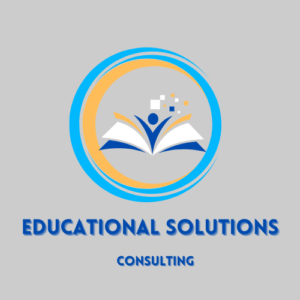
Early Intervention
Parents of preschool-aged children often seek help when they notice their child struggling to meet developmental milestones or exhibiting concerning behaviors. Early intervention is critical, as it can significantly enhance a child’s long-term educational and social outcomes.
To address these concerns, I guide parents in determining if their child might benefit from evaluations, such as psycho-educational assessments, speech and language evaluations, or occupational therapy. These evaluations offer a comprehensive understanding of the child’s strengths and pinpoint areas where they may need extra support.
As an educational consultant, I assist parents in navigating the assessment process, from obtaining evaluations to interpreting the results. This ensures the child receives the appropriate services and interventions to thrive in their early years. Taking action early can make a profound difference in a child’s development and readiness for school.
Does my child need an early intervention?
Here are five questions parents might ask themselves when deciding if they need to seek early interventions for their child
Is it a phase or is there an underlying issue requiring early intervention?
While some preschoolers may naturally “grow out” of certain behaviors or developmental delays, it’s crucial to recognize that not all issues resolve on their own. Developmental milestones serve as important guidelines to identify when a child might need extra support. If a child consistently lags behind peers in areas like language development, social skills, or motor coordination, this may signal an underlying issue that won’t improve without intervention.
Early intervention is vital because it addresses potential challenges before they significantly impact the child’s ability to learn and interact with others. Research shows that early support can lead to better outcomes in school, social settings, and life in general.
Therefore, while some challenges may naturally diminish, seeking early intervention ensures any persistent issues are promptly identified and addressed, providing a strong foundation for the child’s future development.
How do I get help for my child?
States determine eligibility for special education services through a detailed evaluation process designed to identify whether a child has a disability that requires special education and related services. The process begins with a referral, followed by a comprehensive evaluation conducted by a team of specialists.
This evaluation examines various aspects of a child’s development, including cognitive, physical, and emotional functioning, comparing them to established benchmarks. If the evaluation reveals that the child has one of the 13 disabilities outlined in the Individuals with Disabilities Education Act (IDEA), such as autism, learning disabilities, or speech impairments, the child may qualify for special education services.
Once eligibility is confirmed, I collaborate with you and the team to develop an Individualized Education Program (IEP). This legally binding document outlines the child’s current performance levels, specific educational goals, and the services and supports necessary to achieve those goals. The IEP also details how progress will be measured and how parents will be informed of their child’s progress. To ensure it continues to meet the child’s needs, the IEP is reviewed and updated at least annually. Learn more about IEP’s here.
As an educational consultant, I can help refer a child for further evaluation or services. While I don’t conduct formal evaluations like psychological assessments, I assist in identifying when a child may benefit from such evaluations and guide you through the referral process.
Here are some of the evaluations used to assess your child’s development
various reports are used to determine a child’s eligibility for services and to develop an appropriate educational plan. Some of these reports include:
- Psycho-Educational Evaluation: Provides insight into a child’s cognitive abilities, learning style, and potential areas of difficulty. It often includes IQ testing and assessments of academic skills.
- Speech and Language Evaluation: Assesses a child’s speech and language development, including their ability to understand and use language appropriately for their age.
- Occupational Therapy (OT) Evaluation: Looks at a child’s fine motor skills, sensory processing, and daily living skills, determining if they need support in these areas.
- Physical Therapy (PT) Evaluation: Examines a child’s gross motor skills, such as balance, coordination, and physical strength, to identify any delays or difficulties.
- Behavioral Assessments: Assess a child’s behavior and social-emotional development, identifying potential issues such as difficulties with attention, hyperactivity, or social interactions.
- Developmental Assessment: Evaluates various aspects of a child’s development, including cognitive, social-emotional, physical, and adaptive behaviors, to determine if they are meeting developmental milestones.
- Medical Reports: Any relevant medical reports or diagnoses that may impact the child’s learning and development are also considered in the CPSE process.
After reviewing these reports, I will be able to help parents understand their child’s strengths and needs. By guiding parents through the process we will ensure their child receives the appropriate services and supports they need to be successful in school, life and the real world.
Early intervention is crucial because it addresses developmental delays and learning issues at an early stage, increasing the chances of significant improvement and long-term success. By providing targeted support during the critical early years, it helps children build foundational skills that are essential for their future academic and social development.




